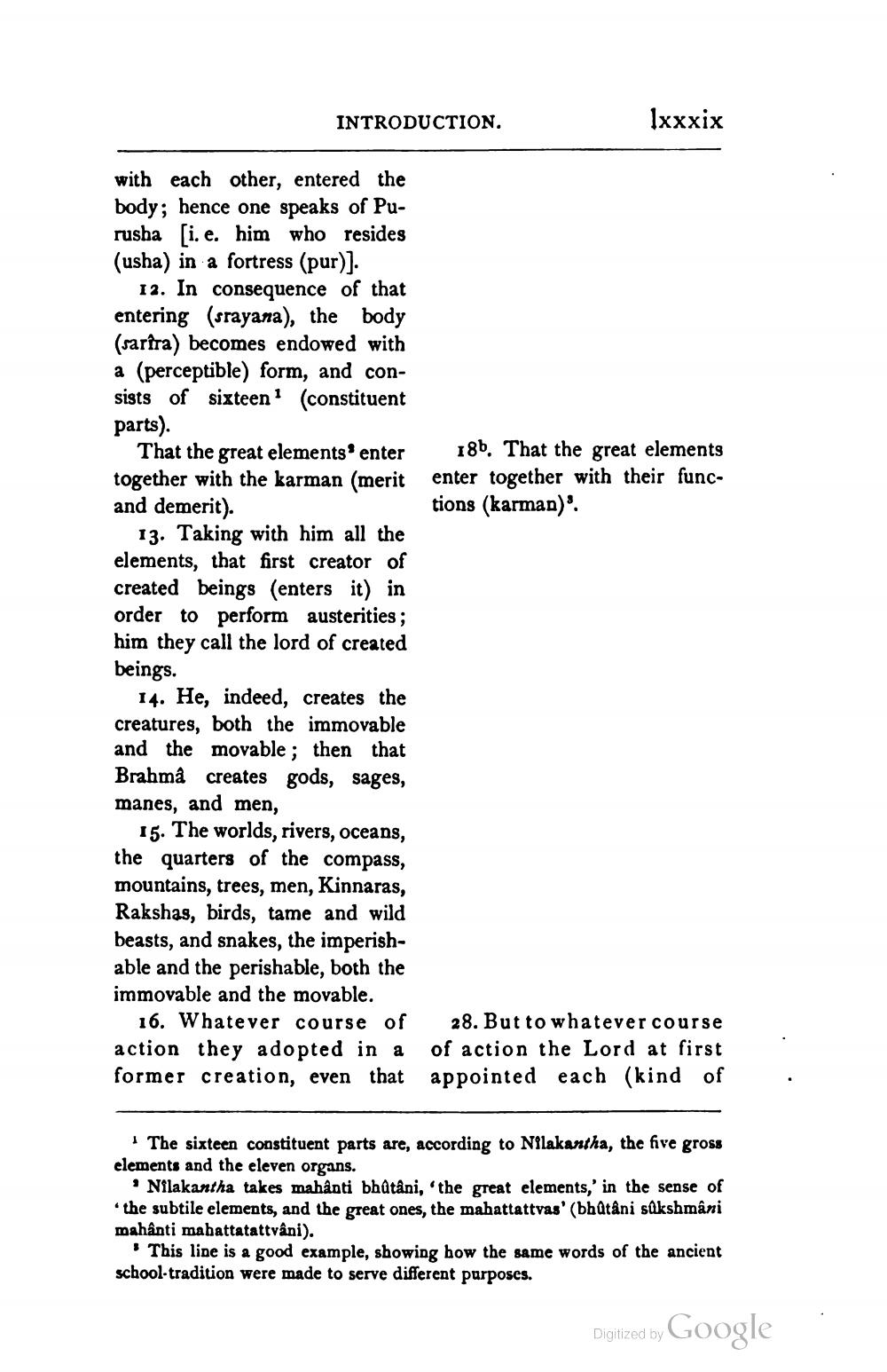________________
INTRODUCTION.
with each other, entered the body; hence one speaks of Purusha [i.e. him who resides (usha) in a fortress (pur)].
12. In consequence of that entering (srayana), the body (sarira) becomes endowed with a (perceptible) form, and consists of sixteen1 (constituent parts).
That the great elements' enter together with the karman (merit and demerit).
13. Taking with him all the elements, that first creator of created beings (enters it) in order to perform austerities; him they call the lord of created beings.
14. He, indeed, creates the creatures, both the immovable and the movable; then that Brahmâ creates gods, sages, manes, and men,
15. The worlds, rivers, oceans, the quarters of the compass, mountains, trees, men, Kinnaras, Rakshas, birds, tame and wild beasts, and snakes, the imperishable and the perishable, both the immovable and the movable.
16. Whatever course of action they adopted in a former creation, even that
lxxxix
18b. That the great elements enter together with their functions (karman)".
28. But to whatever course of action the Lord at first appointed each (kind of
The sixteen constituent parts are, according to Nilakantha, the five gross elements and the eleven organs.
'Nilakantha takes mahânti bhûtâni, 'the great elements,' in the sense of ⚫ the subtile elements, and the great ones, the mahattattvas' (bhûtâni sûkshmâni mahânti mahattatattvâni).
This line is a good example, showing how the same words of the ancient school-tradition were made to serve different purposes.
Digitized by
Google




